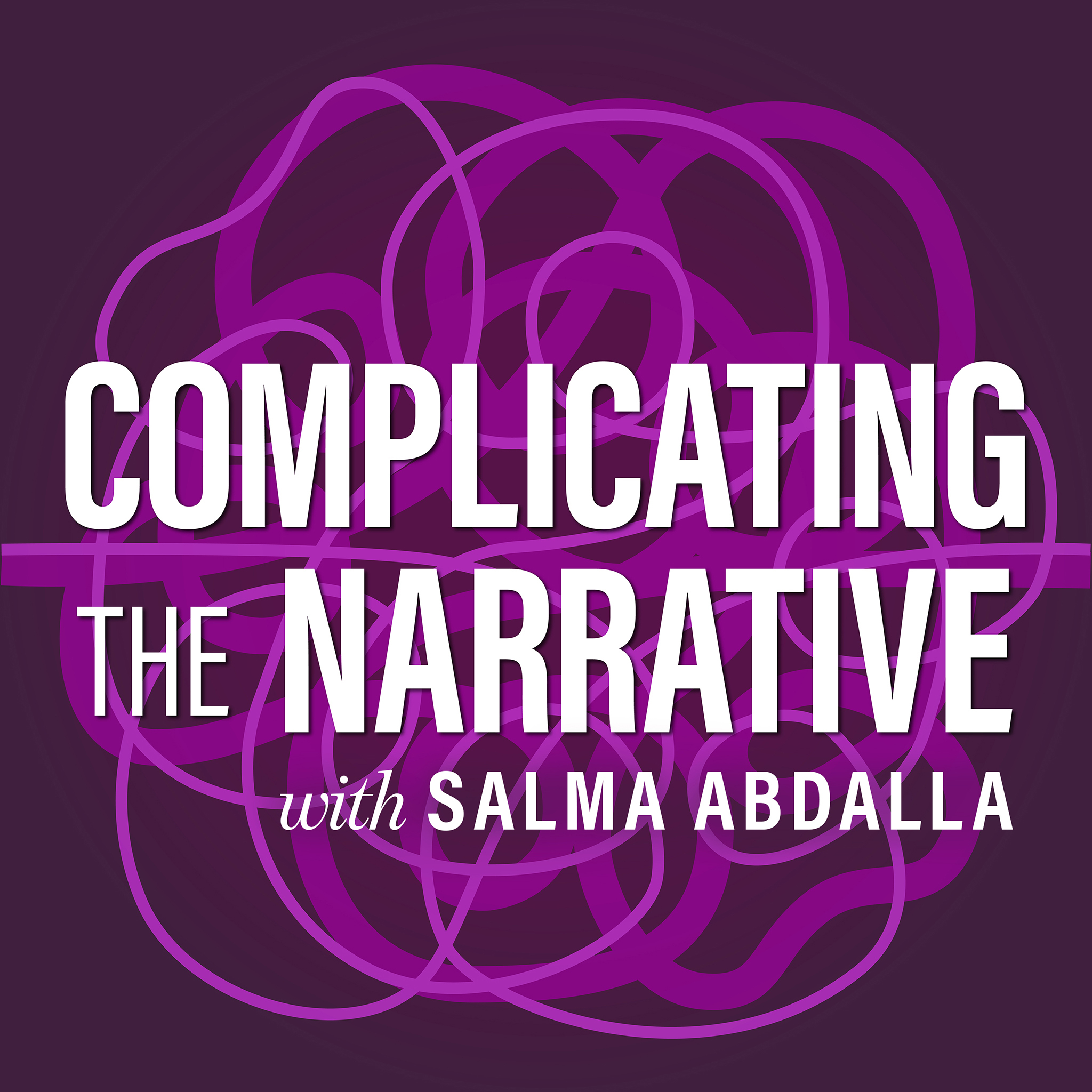Complicating The Narrative

Complicating The Narrative
Podcast Description
In this podcast, hosted by Dr. Salma Abdalla—Assistant Professor and Director of the Healthier Futures Lab at Washington University in St. Louis—we provide rigorous, evidence-based analysis of complex population health challenges. In a time of social, economic, and political upheaval—marked by eroding public trust, polarized narratives, and growing uncertainty—this podcast aims to challenge oversimplified narratives about the forces that shape the health of populations.
Salma engages guests from across disciplines in rigorous, evidence-based conversations that challenge conventional wisdom. The conversations sometimes pose uncomfortable questions, seek nuanced perspectives, and question not just what we think, but how we arrive at our conclusions in public health.
We explore the inherent complexities, real-world tradeoffs, and unintended consequences of public health interventions. Our goal is to empower listeners with nuanced understanding, helping them navigate these multifaceted issues in an informed and balanced way.
The podcast is supported by the Washington University School of Public Health — https://schoolofpublichealth.washu.edu — and the Frick Initiative.
Host: Dr. Salma Abdalla
Editors: Catalina Melendez Contreras and Zachary Linhares
Music: Eden Avery / Melting Glass from Epidemic Sound https://www.epidemicsound.com/track/2fqOXWpHab/
Contact us at: [email protected]
Podcast Insights
Content Themes
The podcast addresses intricate topics in public health such as the implications of social determinants on health outcomes, the effects of public policy on population health, and innovative research in epidemiology, with specific episodes like 'Rethinking Public Health with Dean Sandro Galea' exploring the concept of consequential epidemiology and its relevance to real-world challenges.

In this podcast, hosted by Dr. Salma Abdalla—Assistant Professor and Director of the Healthier Futures Lab at Washington University in St. Louis—we provide rigorous, evidence-based analysis of complex population health challenges. In a time of social, economic, and political upheaval—marked by eroding public trust, polarized narratives, and growing uncertainty—this podcast aims to challenge oversimplified narratives about the forces that shape the health of populations.
Salma engages guests from across disciplines in rigorous, evidence-based conversations that challenge conventional wisdom. The conversations sometimes pose uncomfortable questions, seek nuanced perspectives, and question not just what we think, but how we arrive at our conclusions in public health.
We explore the inherent complexities, real-world tradeoffs, and unintended consequences of public health interventions. Our goal is to empower listeners with nuanced understanding, helping them navigate these multifaceted issues in an informed and balanced way.
The podcast is supported by the Washington University School of Public Health — https://schoolofpublichealth.washu.edu — and the Frick Initiative.
Host: Dr. Salma Abdalla
Editors: Catalina Melendez Contreras and Zachary Linhares
Music: Eden Avery / Melting Glass from Epidemic Sound https://www.epidemicsound.com/track/2fqOXWpHab/
Contact us at: [email protected]
In global health, evidence, authority, and distance are often deeply entangled.
Dr. Seye Abimbola is Professor of Health Systems at the School of Public Health, University of Sydney. He is a leading voice in debates on decolonizing global health, with scholarship focused on health systems governance and epistemic injustice. He is also the founding editor-in-chief of BMJ Global Health and the author of The Foreign Gaze (2024).
In this episode, Seye joins Salma to discuss his collection of essays interrogating the epistemological foundations of the field currently known as global health—and to reflect on what it might mean to reshape that field. Together, they examine who gets to define global health problems and solutions, noting how the field is often shaped by distant, powerful actors rather than those closest to the contexts in which interventions are meant to work.
They also explore how knowledge is generated and valued in global health, questioning the routine elevation of randomized controlled trials as the gold standard for complex social interventions, unpacking why author affiliations can obscure deeper issues of “gaze” versus “pose,” and discussing how local practices are frequently overlooked or rendered illegible as evidence.
Throughout the episode, Seye and Salma invite listeners to reflect on positionality, take complexity seriously, and imagine what the “field formerly known as global health” could become.
Useful resources:
- Abimbola S. The Foreign Gaze: Essays on Global Health. IRD éditions; 2024.
- Abimbola, S. (2011). Seye Abimbola: David Cameron, homosexuality, and HIV/AIDS in sub-Saharan Africa. The BMJ Opinion. https://blogs.bmj.com/bmj/2011/12/08/seye-abimbola-david-cameron-homosexuality-and-hivaids-in-sub-saharan-africa/
- Abimbola, S. (2019). The foreign gaze: Authorship in academic global health. BMJ Global Health, 4(5), e002068. https://doi.org/10.1136/bmjgh-2019-002068
Host: Dr. Salma Abdalla
Editor: Catalina Melendez Contreras
Marketing: Kinkini Bhaduri
Music: Eden Avery / Melting Glass from Epidemic Sound https://www.epidemicsound.com/track/2fqOXWpHab/
The views and opinions expressed by the guest in this episode do not necessarily reflect those of their institution, the funders, or the podcast team.

Disclaimer
This podcast’s information is provided for general reference and was obtained from publicly accessible sources. The Podcast Collaborative neither produces nor verifies the content, accuracy, or suitability of this podcast. Views and opinions belong solely to the podcast creators and guests.
For a complete disclaimer, please see our Full Disclaimer on the archive page. The Podcast Collaborative bears no responsibility for the podcast’s themes, language, or overall content. Listener discretion is advised. Read our Terms of Use and Privacy Policy for more details.